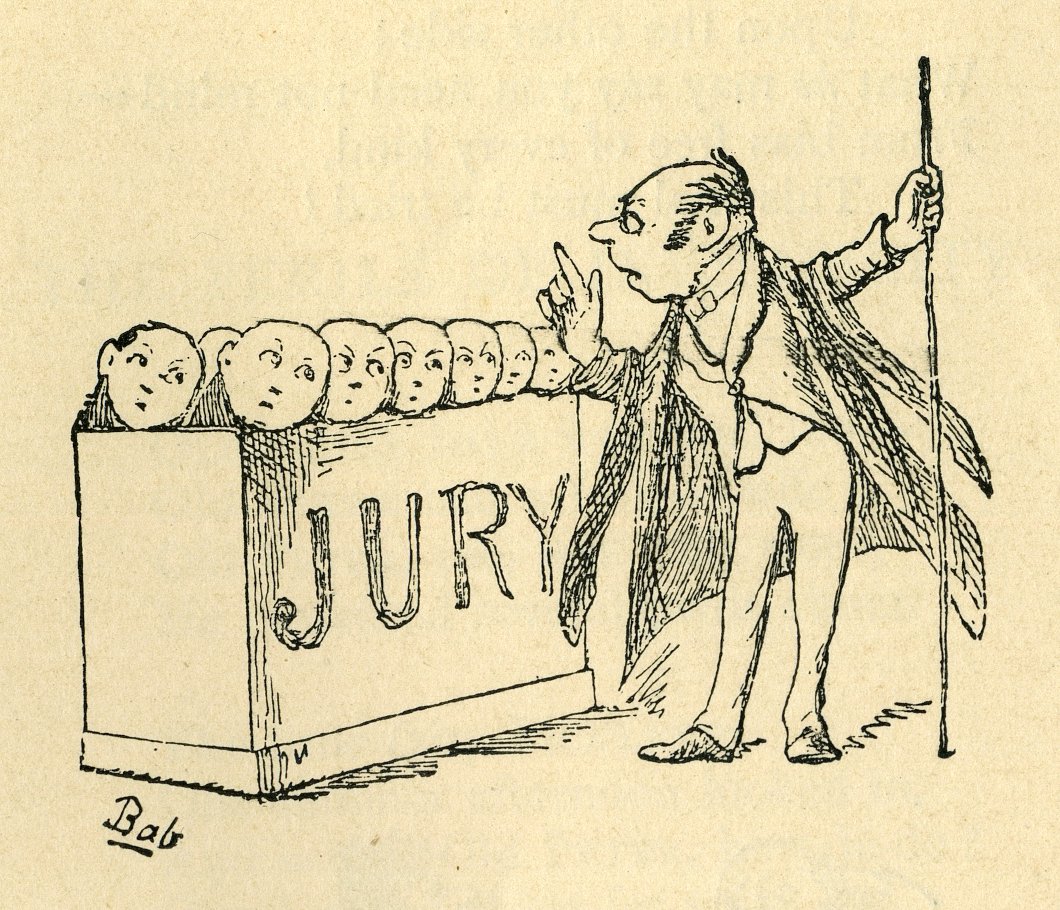
Explore this Show
Overview
Synopsis
Can you sue someone for breaking off an engagement? In Gilbert and Sullivan’s courtroom farce Trial by Jury, it’s a very serious crime! The fickle and bigoted defendant, Edwin, has fallen in love with another woman and has jilted the plaintiff, the beautiful Angelina. Unfortunately for Edwin, all of the members of the jury (and the judge) have fallen for Angelina themselves. Edwin proposes that in order to solve the conflict, he “marry this lady today and the other tomorrow,” which, naturally, Angelina objects to. Ultimately, the resolution that pleases everyone is for the judge to marry Angelina himself! This delightfully ludicrous one-act was initially written as a companion piece to Offenbach’s comic opera La Périchole, but quickly outran it in popularity and critical praise. It is often performed as a double or triple bill with other comic pieces, but it just as often performed alone. Hailed by theatre scholar Kurt Gänzl as "probably the most successful British one-act operetta of all time,” Trial by Jury is a bite-sized portion of Gilbert and Sullivan’s signature witty lyrics, catchy tunes, and ridiculous plotlines.
A note on dialogue: Unlike most Gilbert and Sullivan shows, there is no spoken dialogue in Trial by Jury. Still, the music is generally sung in a British dialect.
Show Information
- Book
- W.S. Gilbert
- Music
- Arthur Sullivan
- Lyrics
- Arthur Sullivan
- Category
- Operetta
- Age Guidance
- Youth (Y)/General Audiences (G)
- Number of Acts
- 1
- First Produced
- 1875
- Genres
- Comedy, Farce, Satire
- Settings
- Unit/Single Set
- Time & Place
- mid-1800s
- Cast Size
- medium
- Orchestra Size
- Medium
- Dancing
- Musical Staging
- Licensor
- None/royalty-free
- Ideal For
- Mostly Male Cast, Includes Adult, Young Adult, Mature Adult, Late Teen Characters, Medium Cast
Context
Plot
Characters
| Name | Part Size | Gender | Vocal Part |
|---|---|---|---|
|
Lead |
Female |
Soprano |
|
|
Lead |
Male |
Tenor |
|
|
Lead |
Male |
Baritone |
|
|
Supporting |
Either or Both |
|
|
|
Supporting |
Male |
Bass |
|
|
Supporting |
Male |
Baritone |
|
|
Featured |
Female |
Soprano |
|
|
Featured |
Male |
Silent |
|
|
Ensemble |
Either or Both |
Variety |
Songs
- 1. "Hark, the hour of ten is sounding" (Chorus) and "Now, Jurymen, hear my advice" (Usher)
- 1a. "Is this the Court of the Exchequer?" (Defendant)
- 2. "When first my old, old love I knew" (Defendant and Chorus) and "Silence in Court!" (Usher)
- 3. "All hail great Judge!" (Chorus and Judge)
- 4. "When I, good friends, was call'd to the Bar" (Judge and Chorus)
- 5. "Swear thou the Jury" (Counsel, Usher) and "Oh will you swear by yonder skies" (Usher and Chorus)
- 6. "Where is the Plaintiff?" (Counsel, Usher) and "Comes the broken flower" (Chorus of Bridesmaids and Plaintiff)
- 7. "Oh, never, never, never, since I joined the human race" (Judge, Foreman, Chorus)
- 8. "May it please you, my lud!" (Counsel for Plaintiff and Chorus)
- 9. "That she is reeling is plain to see!" (Judge, Foreman, Plaintiff, Counsel, and Chorus)
- 10. "Oh, gentlemen, listen, I pray" (Defendant and Chorus of Bridesmaids)
- 11. "That seems a reasonable proposition" (Judge, Counsel, and Chorus)
- 12. "A nice dilemma we have here" (Ensemble)
- 13. "I love him, I love him, with fervour unceasing" (Plaintiff, Defendant and Chorus) and "The question, gentlemen, is one of liquor" (Judge and Ensemble)
- 14. "Oh, joy unbounded, with wealth surrounded" (Ensemble)
A song with an asterisk (*) before the title indicates a dance number; a character listed in a song with an asterisk (*) by the character's name indicates that the character exclusively serves as a dancer in this song, which is sung by other characters.
Monologues
Scenes
Key Terms
Sorry! We do not currently have terms for this guide.
Videos
Quizzes
Sorry! We do not currently have quizzes for this guide.
Themes, Symbols & Motifs
Sorry! We do not currently have learning modules for this guide.
Quote Analysis
Sorry! We do not currently have learning modules for this guide.
